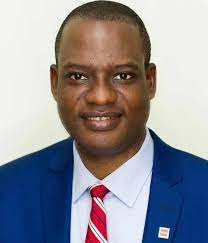Apparently miffed by the level of public’s handling and maintenance of Federal Government’s assets across the country, the Chairman, Presidential Fiscal Policy and Tax Reforms Committee, Taiwo Oyedele, has expressed his concern about the detestable attitude in view of the costs to sustained drive towards Nigeria’s sustainable development.
Oyedele, who spoke on his concern about the ugly development at the end-of-year cocktail party held in his honour by the Harvard Business School Association of Nigeria (HBSAN), estimated the value of the assets at about N100 trillion.
According to him, if properly managed, the government can generate N10 trillion revenue from the assets yearly to fund the nation’s developmental projects and programmes on a sustainable basis.
He said: “Government has not shown care at all about those assets such that they are being mismanaged. Imagine that you become more efficient with a hundred trillion assets alone. Even if you get a return of 10 per cent per annum, that is N10 trillion revenue.”
The tax expert, pointed out that if the assets could not be managed properly, they should be sold off, and by so doing partly help to mitigate the current foreign exchange liquidity crisis, boost productivity of the private sector with the attendant positive implications for government’s revenue earnings from taxes.
Oyedele said the Ministry of Finance Incorporated (MOFI) Act could be further amended to provide that all the wasting public assets, including government’s interest in enterprises, should be managed by MOFI.
He explained that the top pillar of the 75-member presidential committee revolved round economic growth facilitation, adding that the only sustainable way to boost governments revenue is to grow the economy.
The committee’s chairman urged the fiscal authorities look at impediments that make it difficult for the economy to be competitive and grow, particularly for small businesses, and adopt appropriate policy measures to remove them.
Oyedele hinted that the committee had already submitted its reports to the President with key recommendations to address critical economic issues, especially those ranging from exchange rate management, the impact of fuel subsidy removal, and moderation of inflation to facilitate sustainable growth of the country.






